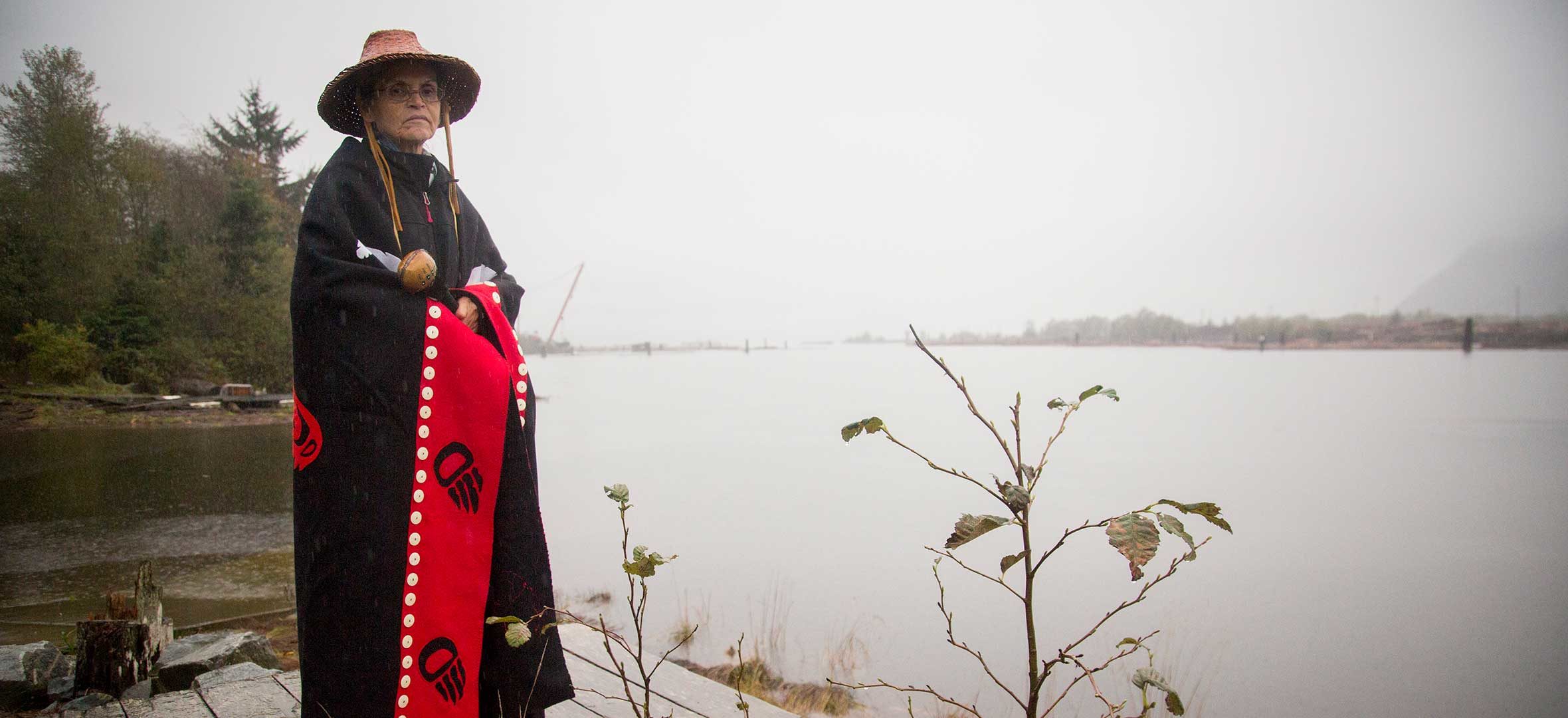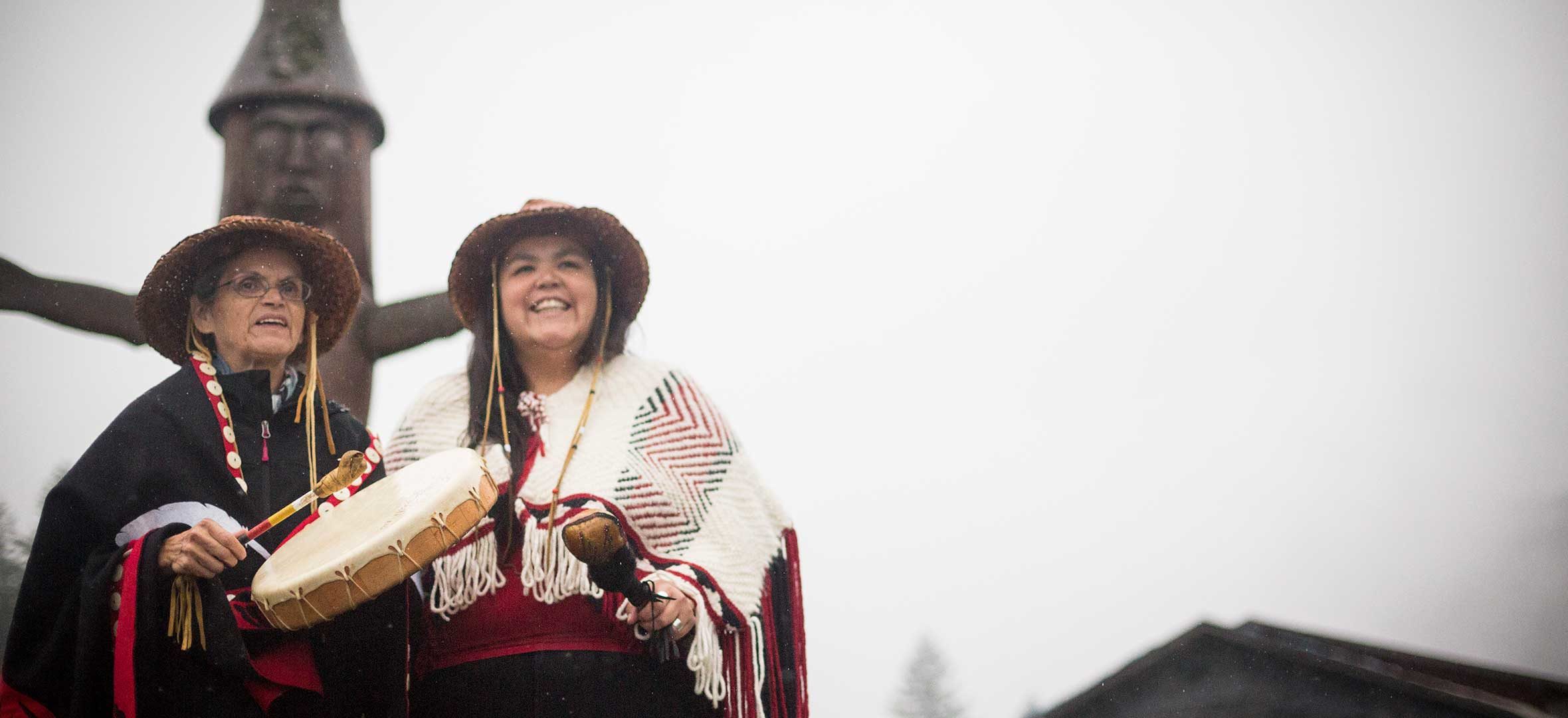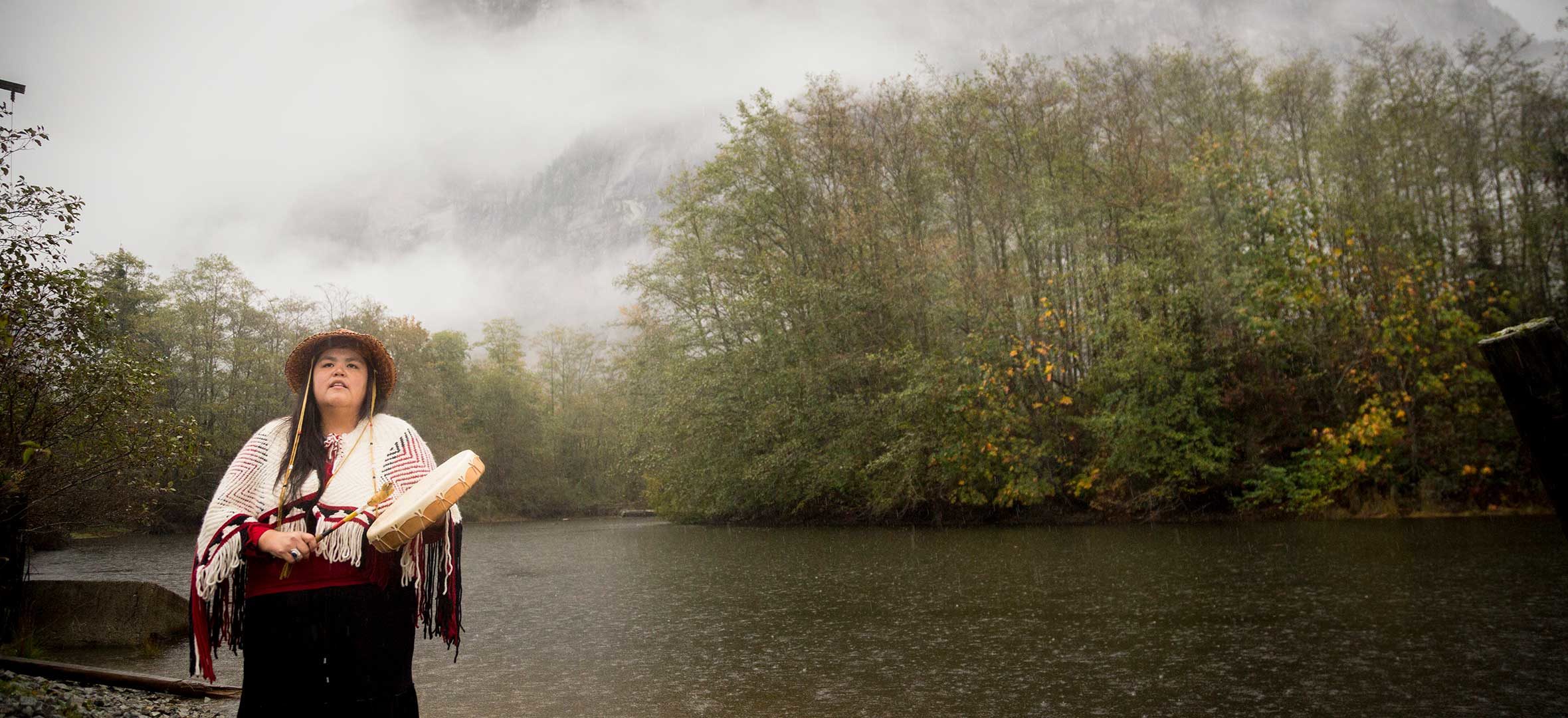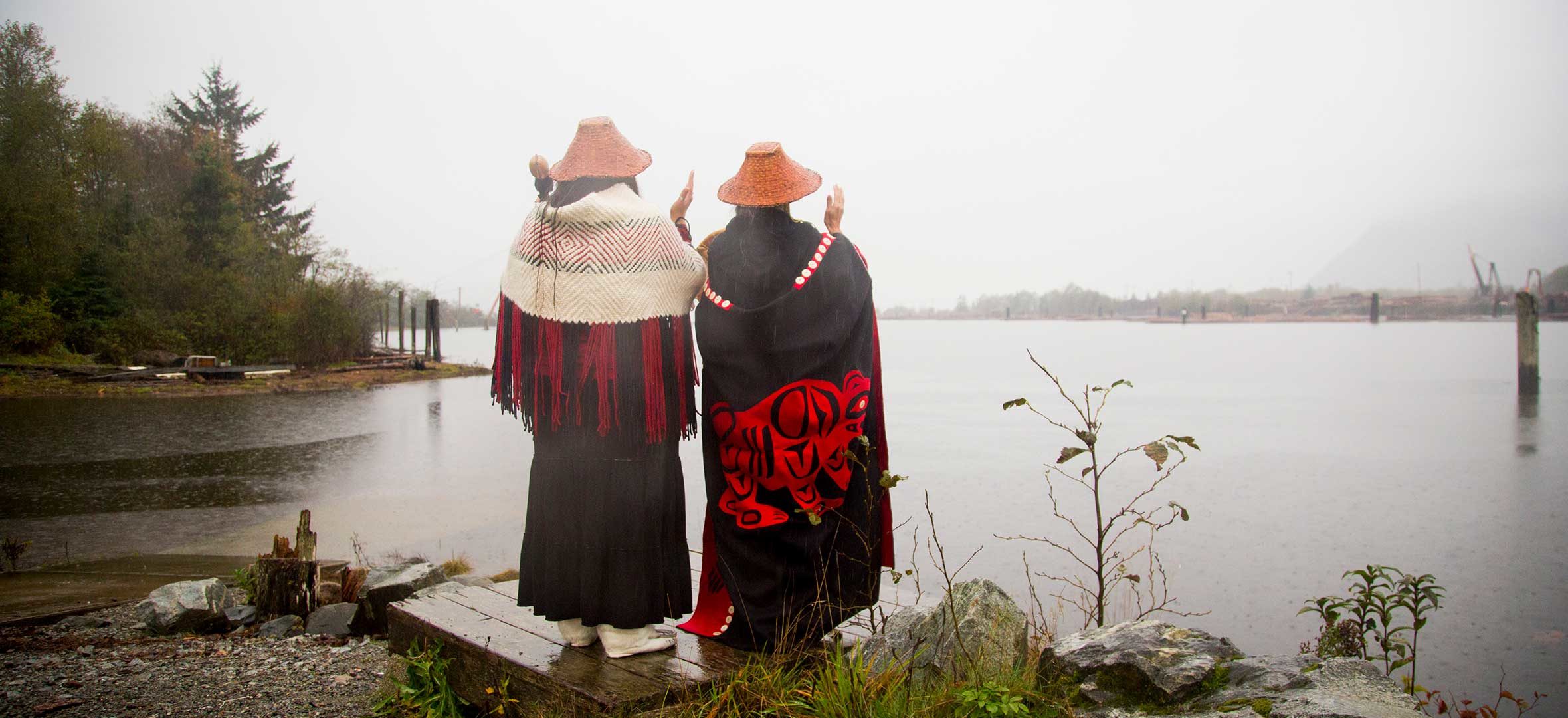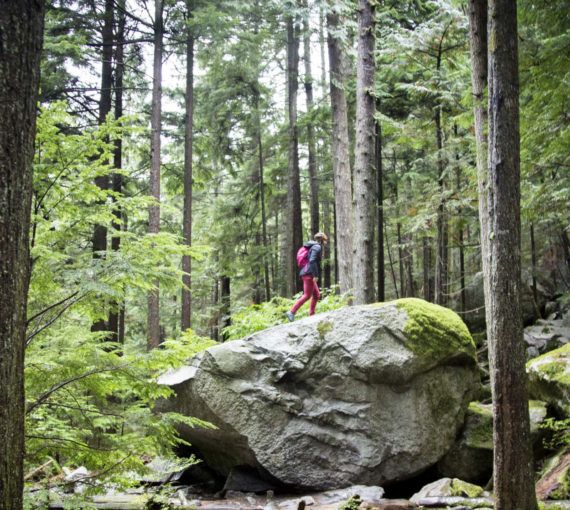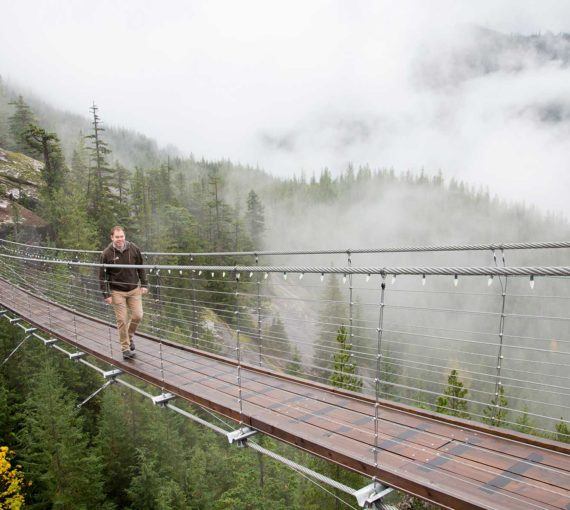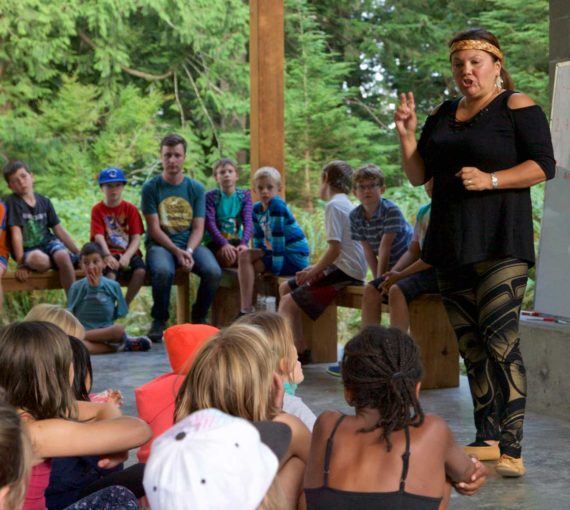Excerpts from the words of mother and daughter Linda and Joyce Williams, Skwxwu7mesh (Squamish) Nation
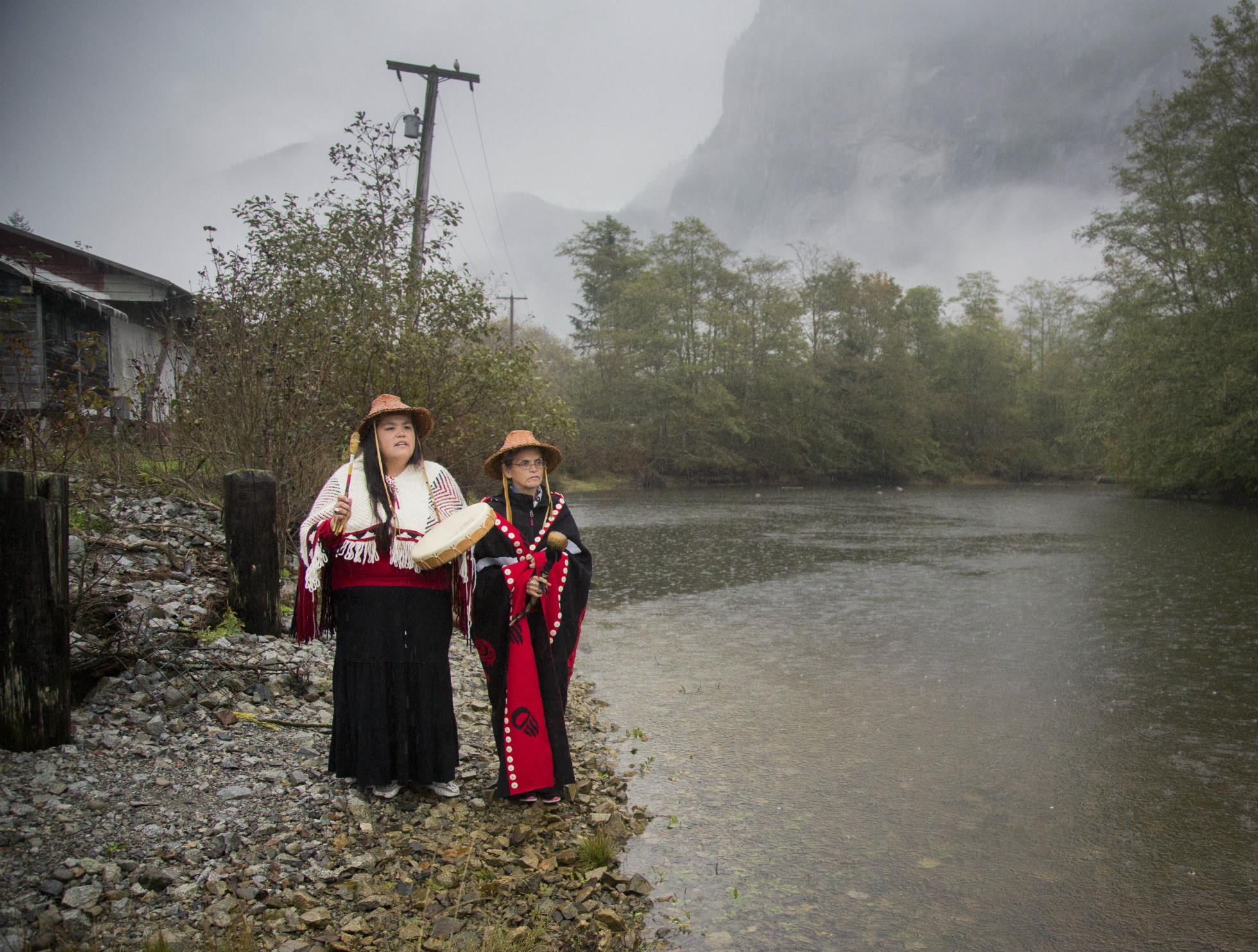
Joyce and Linda Williams of the Skwxwu7mesh (Squamish) Nation. (Photo: Kris Krug)
Linda Williams, Kwekwin Kwelhaynexw (“Where the Spirit Lives” in the Skwxwu7mesh language), mother to five, grandmother to eight:
I was raised in a village called Cheekeye. Our elders told me stories of when they travelled up the Howe Sound by canoe from North Vancouver. Squamish was our people’s winter home. There’s a lot of rich history of our people travelling these waters for hundreds of years. And it has sustained our people.
When I was a teenager, we had to come down from Cheekeye and collect herring roe. The salmon come through the Sound and go up the rivers; our people are considered salmon people and river people. Keeping this Howe Sound healthy has always been the number one concern for our people.
With all the pollution in the Sound, there wasn’t any more herring roe, and the amount of salmon coming up depleted. Our people lived off fish and hunting, and my family grew up very rarely having store-bought meat, so it was pretty devastating.
The most recent exciting thing is the Howe Sound is healthy again. The herring roe have returned; that brings in the dolphins, and the killer whales are following the dolphins.
From then till now there’s been a lot of positive changes. The Watershed Society, they’ve done a lot of work restoring the watershed and the estuary. Our youth have started canoe racing again. That’s keeping our youth active and healthy, and they’re learning traditions. It really builds up their self-esteem — that’s huge.
When I think of organizations and governments talking about, “It’s [development projects] going to bring in revenue,” it makes me angry, because to me and a lot of our people, it’s not the money that’s important; it’s keeping this Mother Earth healthy.
First Nations people are highly susceptible to diabetes because of the food that’s not of us. For my grandchildren to have that healthy diet of traditional food, we have to keep our waterways healthy.
Know us as Skwxwu7mesh People. We will always be here. We’re not going anywhere. This land and the water is who we are, it’s where we come from, and we’ll always fight for it.
It’s a natural part of our environment, that all of these things survive. Not just us as human beings, but the survival of the land around us.
All of the meetings and the forums we’ve gone to, the majority of people attending are the elders. Something needs to happen for our young people to start taking an interest and standing up with the rest of us. It gives me hope that my daughter has become so actively involved. Now we’re not fighting to keep the people away, like our ancestors had to do, but now we’re actually really fighting together for our land.
God forbid our land should be totally devastated and the children ask, “What did you do to stop it?” Are we going to feel shame in saying, “I didn’t do anything?”
Joyce Williams, new mom, daughter, sister, auntie, cousin, niece:
The Howe Sound was our ways of travel; it was our highway. All the different little spots of the Howe Sound had their different names, their different uses. Certain spots for fishing, for berry picking, for stopping to rest.
Unfortunately, in my lifetime there’s not been as much use of it as it was traditionally, because of all the industry. The wildlife wasn’t there, the traditional canoeing wasn’t there. It just has recently come back into my life. I’m starting to learn about the different spaces.
Our canoe family would go out [to the waterfront] once a week. We would pull our traditional dugout canoes. And that’s where we would practice for Tribal Journeys.
My mom brought me to a Future of Howe Sound Society forum. That’s when I learned about MacNab Creek, Kwáchtenem [Skwxwu7mesh place name]. Traditionally our people would stop there and fish. The proposed development of the LNG at Swig’a’t, traditionally that was a very sacred place to us. That’s where people would go as a sort of power source, where they would go to do spiritual training, to do puberty rites.
It’s my hope that our people, especially the youth, start engaging in what is happening in our territories and making a stand for it.
We’d have ceremonies welcoming back the salmon. When we had that whale come back, we talked about having a welcome back ceremony for that whale. But it’s something that has not been done before, because we’ve never had to welcome them back, because they were always there.
I understand that people need to work to support themselves and their family, but all of these [proposed developments] would be just too much for the Howe Sound to take. I would really like to see the tourism industry go forward, and have that create jobs. Especially for First Nations people, we could create some positions and get our people back out on the land again.
My hope is that it’s as it’s coming to be today, not as I’ve seen it as a youth, with all the industry. Having the whales come back and the dolphins. Having our herring come back and being able to once again use it for our food source. To be able to fish, and get the herring roe and not worry about what kind of effect it’s going to have if you eat it.
It’s my hope that our people, especially the youth, start engaging in what is happening in our territories and making a stand for it. What got me engaged was the movement of Idle No More. It got me curious, and then it got me scared — about what was happening and not having any control over it. And also becoming a mom. We need these things to be here for my daughter and for her children.
